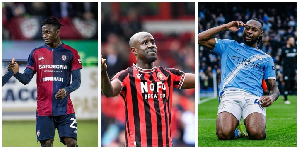Opinions of Tuesday, 27 October 2015
Columnist: Brako-Powers, Kwabena
How Businesses Can Prepare Tomorrow’s Breadwinners
Kwabena Brako-Powers (Ghana Institute of Journalism)
There are 3 sets of workers functional in any one business at the same time; today’s breadwinner, tomorrow’s breadwinner, and yesterday’s breadwinner. The one thing that differentiates each from the other—is the amount of resources allocated to their survival. Many businesses, here in Ghana, are replete with yesterday’s breadwinners who are not willing to yield the opportunity to today’s breadwinners and tomorrow’s breadwinners. Or, older workers in some organizations still run the show and do everything to deter the youth. In this piece, I have attempted to explain the prospect of businesses that invest in persons of these categories. Though the concept was taken from Peter Drucker’s Managing for Results book, however, its use here is different from the original use.
Yesterday’s Breadwinners:
Every business cherishes yesterday’s breadwinners because their efforts in the past helped to build the company. Their efforts, commitment, foresight and calculations made the company a leader in the industry. They have been around for ages. However, they are not in-tune with the changing times—internet, new technologies, and information age. They are living on past glory and as a result of their present actions, the company is incurring cost. Any attempt to give the rein of leadership to the newer generation is met with fierce and grandeur opposition. They attend fresher courses of the department, yet input remains at a constant. The truth about yesterday’s breadwinners is that they are obsolescent—but they don’t know. Shortly they will be obsolete and decline fast. However, nobody can stop their decline. What is required of businesses is to put them in a position for today’s breadwinners and tomorrow’s breadwinners to benefit from their wealth of experiences. They could run training programs for the newer generation while learning from them.
Today’s Breadwinners:
These workers account for the substantial volume of the business’ revenue. They know their job. Their judgment and predictions go uncontested. As a result of that they are ably supported by the resources of the organization. Spending key resources on these workers is justified since their present efforts contribute immensely to the organization’s profit margin. Workers in this category are in their prime. They are successful in whatever task is entrusted to them. To benefit enormously from these workers, businesses must give them key positions within the organization to put their talents to use. They should be paired with some yesterday’s breadwinners so as to benefit from their rich experiences. However, for a business to get more from its workers, it needs to identify tomorrow’s breadwinners and invest in them.
Tomorrow’s Breadwinners:
Tomorrow’s breadwinners hold the promise of the organization’s future. They are tactful, calculative and committed when given opportunities to perform. They exhibit the willingness to learn from yesterday’s breadwinners and today’s breadwinners. However, they are still in the process of maturity. If management invests in them, they stand a chance of contributing substantial to the organization’s future revenue and leadership in the industry. Many of the football clubs in Europe invest in these set of workers. Through their football academies, many of these persons are prepared for future positions in the mother club. Sadly, many businesses ignore these employees for yesterday’s breadwinners without logical reasons.
Success is not a onetime event. It’s a lifestyle. It’s a habit. To remain the leader in your industry demands more than repetition of old habits. Invest in today’s breadwinners and tomorrow’s breadwinners for an increased revenue. Dean of Management Philosophers Peter F. Drucker said, “Success in repetitive attempts becomes less rather than more probable with each repetition.”
There’s a prima facie case to support businesses that channel key resources to back today’s breadwinners and tomorrow’s breadwinners. The greatest self-delusion is the belief that investing in yesterday’s breadwinners, singularly, would lead to the success of the business.














